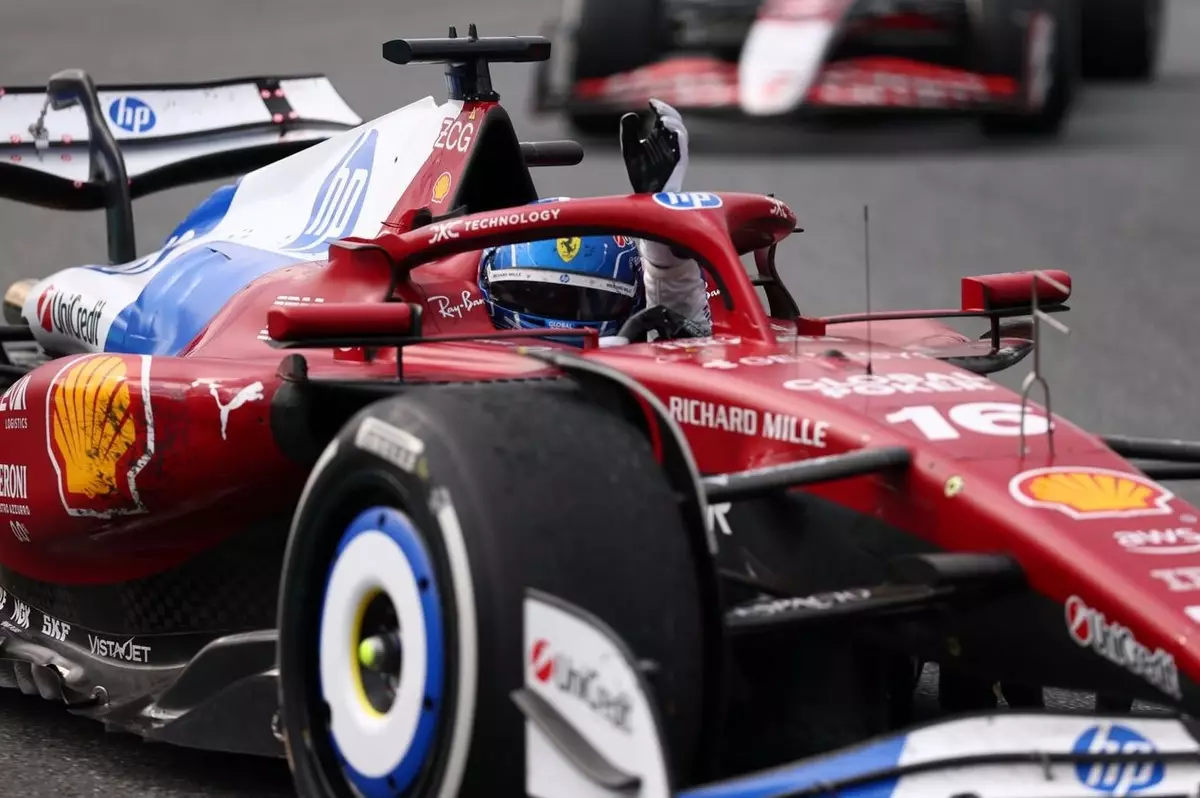In the high-stakes world of Formula 1 racing, moments of exhilaration can quickly turn into scenes of frustration and tension. The recent Miami Grand Prix showcased this dynamic in vivid detail, particularly between Ferrari teammates Charles Leclerc and Lewis Hamilton. Their on-track battle, marred by controversial strategic decisions, unveiled the raw emotions and complexities inherent in team dynamics. In the midst of all this, Leclerc’s insistence that there are “no bad feelings” with Hamilton raises questions about team cohesion and individual aspirations in a fiercely competitive environment.
Leclerc’s perspective is indicative of a broader theme in motorsports: the fine line between personal ambition and team objectives. While he recognizes Hamilton’s frustration at being bogged down by the harder compound tires, his commentary reveals a maturity that is commendable yet raises eyebrows about Ferrari’s current strategic approach. It’s evident that Leclerc respects Hamilton’s competitive spirit, but does that respect translate into effective teamwork when it truly matters?
Strategic Pitfalls
The strategic decisions made during the Miami Grand Prix served as a glaring reminder of the challenges that Formula 1 teams face. As Hamilton, equipped with medium tires, struggled behind Leclerc, the racing strategy was clearly in question. Hamilton’s radio complaints were not just the musings of a frustrated driver; they highlighted the disarray within the Ferrari pit wall. Their delay in addressing the drivers’ needs could be seen as a failure to orchestrate the teamwork essential for success.
Leclerc stated, “We need to do better, that’s for sure,” pinpointing an area where Ferrari must focus its energies. In races where team strategy often dictates the outcome, the lack of decisive communication and foresight can be detrimental. As Leclerc himself admitted, a preemptive discussion before swapping positions could have led to a more favorable outcome for both drivers. This internal discord is not merely a footnote; it reveals deeper issues within Ferrari’s operational strategy.
The Emotional Roller Coaster
While teamwork requires impeccable strategy, it also hinges on managing the emotional landscape of its competitors. Leclerc’s frustration, borne from the intense atmosphere of racing, echoed through his radio messages. He noted that battling for P8 felt disheartening, voicing what many drivers encounter when paired with teammates in similar predicaments. The struggle for minor points likely compounded their frustration, emphasizing that even minor positional changes can have significant emotional ramifications.
This blend of competition and camaraderie is delicate. For every teammate moment shared, there are ten that are fraught with difficulty. Leclerc and Hamilton’s relationship, often viewed through the lens of their respective championships, becomes a complex tapestry woven from threads of rivalry, respect, and the harsh realities of racing.
Looking Ahead: Room for Growth
As Leclerc poignantly highlights, “we need to regroup as a team and be better.” This mantra is pivotal for Ferrari as they navigate the intricacies of teamwork and strategic execution. Each race presents a new opportunity for growth, and it’s clear that Ferrari has both the talent and the potential to rise above their current challenges. However, reflection and proactive measures are necessary to bring about the desired results.
Leclerc’s acknowledgment that the team did not maximize their potential during the race serves as a call to action for both the drivers and the strategic team. Rather than allowing emotions to cloud judgment, the focus should shift towards fostering better communication and understanding among the drivers and support staff. The path forward requires robust strategies that align with the ambitious goals set by Ferrari.
In the face of the pressures that come with Formula 1, it is vital to recognize that adversity can facilitate growth. As Leclerc and Hamilton navigate their partnership, the lessons learned from this race will likely inform their approach to future challenges. While they may not align perfectly at all times, the critical analysis of their experiences may pave the way for a more harmonious and successful collaboration on the track. The Miami Grand Prix serves as a pivotal moment for reflecting on what it truly means to be a team in the fast-paced arena of motorsport.


Leave a Reply